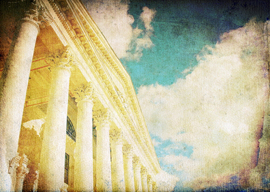
July 05, 2012

A 7 to 2 majority (which excluded two of the progressive justices who joined the chief in rewriting tax law and included the four dissenting justices who would have invalidated the entire statute as beyond the constitutional power of Congress) held that while Congress can regulate commerce, it cannot compel one to engage in commerce. The same majority ruled that Congress cannot force the states to expand Medicaid by establishing state insurance exchanges. It held that the congressional command to establish the exchanges combined with the congressional threat to withhold all Medicaid funds—not just those involved with the exchanges—for failure to establish them would be so harmful to the financial stability of state governments as to be tantamount to an assault on state sovereignty. This leaves the exchanges in limbo, and it is the first judicial recognition that state sovereignty is apparently at the tender mercies of the financial largesse of Congress.
The logic in the majority opinion is the jurisprudential equivalent of passing a camel through the eye of a needle. The logic is so tortured, unexpected and unprecedented that even the law’s most fervent supporters did not make or anticipate the court’s argument in its support. Under the Constitution, a tax must originate in the House (which this law did not), and it must be applied for doing something (like earning income or purchasing tobacco or fuel), not for doing nothing. In all the history of the court, it never has held that a penalty imposed for violating a federal law was really a tax. And it never has converted linguistically the congressional finding of penalty into the judicial declaration of tax, absent finding subterfuge on the part of congressional draftsmanship.
I wonder whether the chief justice realizes what he and the progressive wing of the court have done to our freedom. If the feds can tax us for not doing as they have commanded, and if that which is commanded need not be grounded in the Constitution, then there is no constitutional limit to their power, and the ruling that the power to regulate commerce does not encompass the power to compel commerce is mere sophistry.
Even The Beatles understood this.
Image courtesy of Shutterstock